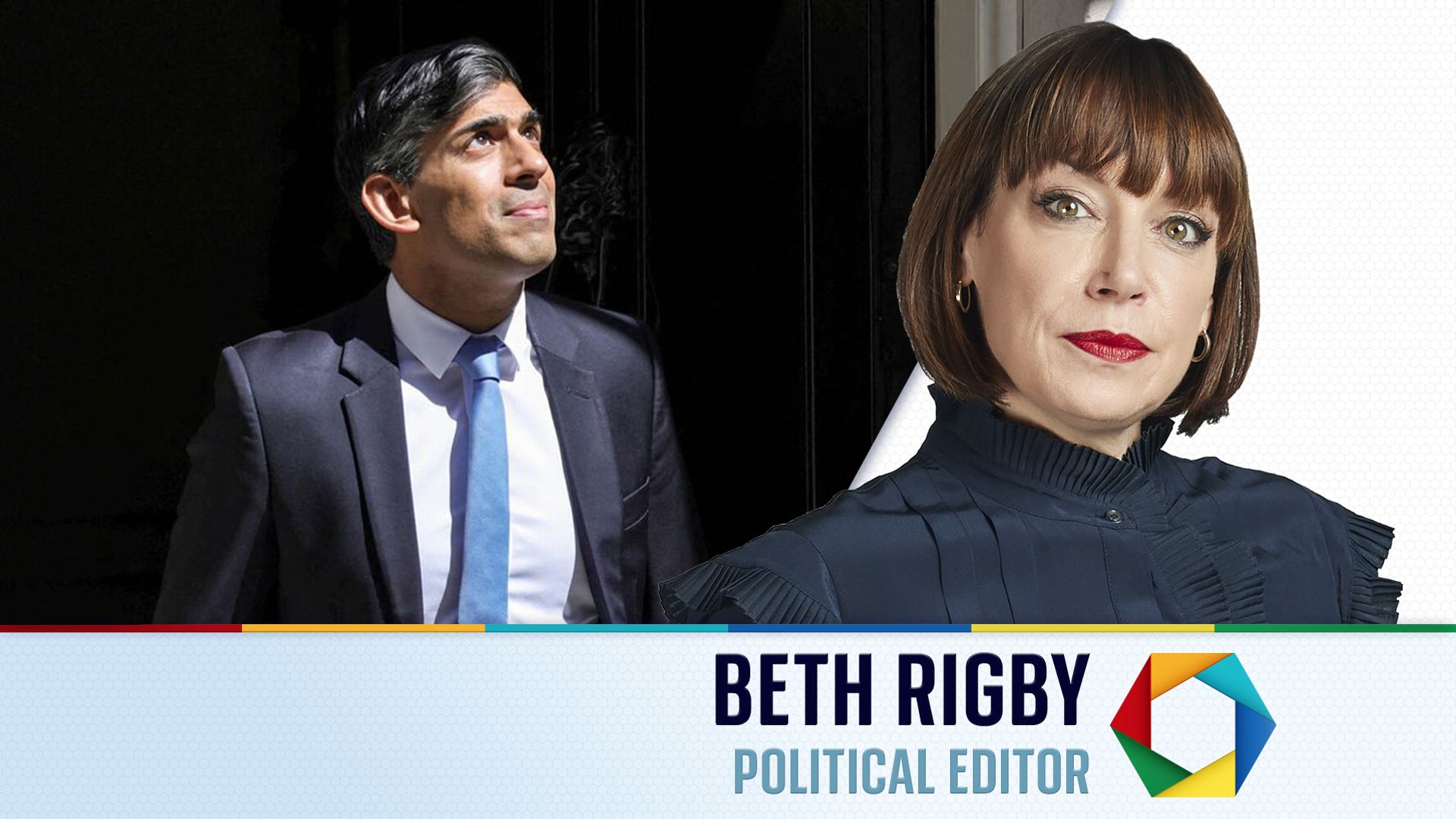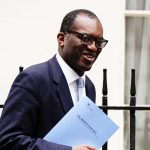After a disastrous set of local election results, Rishi Sunak remains in Downing Street, but his party is moving on.
Over the weekend, former home secretary Suella Braverman made her pitch to the party in a rather personal attack on the prime minister.
On Wednesday, Robert Jenrick made his.
But where the former immigration minister differed from his leadership rival is how he went about it.
Mr Jenrick’s intervention was couched in a 120-page migration policy document entitled Stopping the Crossings, which set out a series of policy ideas for the prime minister to implement now.
At the heart of his argument is the observation that the mainstream of the country is concerned about high levels of immigration and the Conservative Party must recommit to bringing immigration back down to the “tens of thousands” and fulfil the Brexit promise of controlling borders and driving down immigration.
The local elections were “appalling” says Mr Jenrick – and point to a general election drubbing unless Mr Sunak grips migration levels, and quick.
Politics latest: ‘Nervousness’ in Labour after shock defection – as Tory HQ ‘braced for more’
Tory MP Natalie Elphicke defects to Labour Party
Natalie Elphicke: Who is the Tory MP who defected to Labour at PMQs?
“These were appalling local election results. Let’s not beat around the bush,” he told me.
Please use Chrome browser for a more accessible video player
“And they point towards a very serious defeat for the government at the general election unless we can change course and win back some of those Conservative voters who are currently not supporting us or are drifting to Reform, who performed very well in the local elections.
“I think we have to have a period of introspection [and] that needs to be a short period because time is running out.
“And then we need to bring forward some policies that meet the concerns of the public.
“And I think the most important one of those, to win back Reform voters and 2019 Conservative voters who don’t feel that the party is being conservative enough, is legal migration.
“And that’s why I think the prime minister and the government could take the recommendations that we’ve given them and implement them in the coming weeks.”
His intervention couldn’t have come at a more pertinent moment.
Less than three hours later, Natalie Elphicke, who represents the constituency of Dover, where illegal boat crossings are a major issue, crossed the floor to join the Labour Party.
Please use Chrome browser for a more accessible video player
Her explanation: “From borders to biosecurity, Rishi Sunak’s government is failing to keep our borders safe and secure. Lives being lost in the English Channel while small boats arrivals are once again at record levels. It’s clear they have failed to keep our borders secure and cannot be trusted.”
Many Tories were left bemused that Ms Elphicke, who has always been on the right of the party and just months ago was being hugely critical of Sir Keir Starmer’s immigration policy, had jumped ship.
But it speaks to the splintering of a party that really has lost its way – that on the same day and on the same subject, one Conservative talks of the threat of Reform when it comes to migration policy while another defects to Labour.
Underlying all of it is the battle for the soul of the party that will resolve after the general election, but will play out continuously until polling day.
Read more:
Who is Natalie Elphicke?
Can UK have its cake and eat it after China’s MoD hack?
Please use Chrome browser for a more accessible video player
Andy Street, as he lost the West Midlands mayoralty, told me on Saturday night shortly after his defeat, that it was his version of a “moderate, inclusive, tolerant Conservative Party that delivered time and time again” as he implored colleagues not to lurch to the right in any future leadership contest, saying his version of Conservatism came close to holding the West Midlands as around the country the tide turned against the Tories.
But that argument seems already lost.
Mr Jenrick, who argues that controlling legal migration is an “entirely mainstream view shared by the vast majority of the public”, makes a fair point: it was the One Nation Conservative David Cameron and his successor Theresa May who argued for far stricter controls of migration numbers.
But what came through more strongly in his interview was not trying to hold onto the centre ground, but trying to see off the threat from the right.
Keep up with all the latest news from the UK and around the world by following Sky News
He is crystal clear in his arguments around migration that the threat Conservatives have to see off is from the Reform Party and is clear, too, that he would have “no problem” letting Nigel Farage, who plays a huge role in this rival outfit, back into the Conservative Party.
For many of his colleagues, that idea would be abhorrent, but Mr Jenrick knows what ground the next Conservative leadership election will be fought, and migration is going to be a critical issue in winning over party members.
Mr Jenrick says he believes Mr Sunak could implement some of these proposals to vote through a cap on legal migration and start bringing the numbers down in the coming weeks and months.
But really this is a pitch for what comes after Mr Sunak, as the leadership battle rumbles on in a party that has almost admitted defeat before any general election votes have even been cast.






















